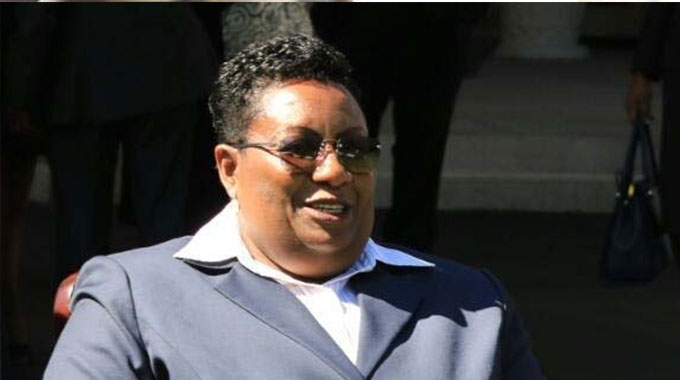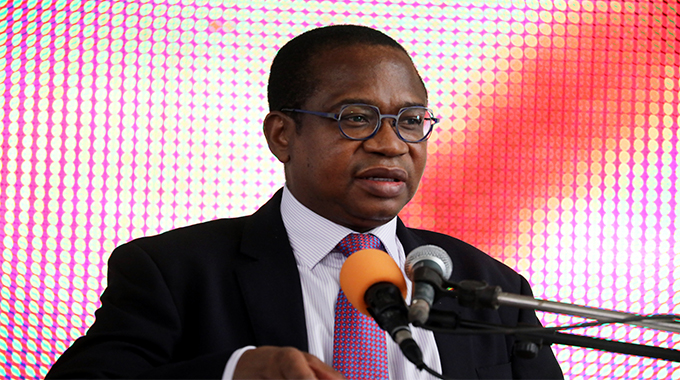EDITORIAL COMMENT: Corruption fight continues to gain impetus

THE Second Republic under President Mnangagwa has identified corruption as one of the major impediments to economic growth and the general well-being of the nation.
It has cost Zimbabwe billions of dollars hence the New Dispensation’s prioritisation of the anti-graft fight as it seeks to put the country on a growth trajectory. The campaign against corruption requires the collective efforts of all Zimbabweans hence the need for a united front in confronting this evil vice. It should be borne in mind that current efforts to turnaround the economy will not succeed unless the scourge of corruption is eliminated from society.
All forms of corruption and rent seeking behaviour need to be eliminated and a new culture of honesty and hard work inculcated in the psyche of Zimbabweans if the country is to turn the corner. We are glad that the process of putting in place strong institutions to fight graft has begun in earnest with the Zimbabwe Anti-Corruption Commission having been constituted.
President Mnangagwa appointed Justice Loice Matanda Moyo – a distinguished and respected member of the bench whose track record in the justice delivery system is unblemished – as chairperson of Zacc. A strong and no nonsense character, Justice Matanda-Moyo leads a stellar cast of commissioners comprising people of impeccable credentials and from diverse backgrounds including some who were in the opposition Movement for Democratic Change party. Among them is Ms Jessie Majome, a human rights lawyer with a history of fighting for justice for the downtrodden.
She is also a former MP for Harare West and chairperson of the Portfolio Committee on Justice Legal and Parliamentary Affairs. Others are Mr Gabriel Chaibva, a former opposition member, Mr John Makamure, the Southern African Parliamentary Support Trust (SARST) executive director, Mrs Thandiwe Thando Mlobane, Mr Kuziva Phineas Murapa, Mr Frank Muchengwa, Retired Major Michael Dennis Santu and Mrs Mabel Ndakaripa Hungwe. Among these are accountants, lawyers, auditors and police officers making for a diverse expertise mix.
The fact that this Commission is headed by a judge gives it impetus and credibility. Their investigations should yield solid cases prosecutable in the courts of law. President Mnangagwa has also moved quickly to capacitate the Commission by giving it “teeth” to execute its mandate. In an Extraordinary Government Gazette published two weeks ago through Statutory Instrument 143 of 2019, Zacc was given arresting powers.
Justice, Legal and Parliamentary Affairs Minister Ziyambi Ziyambi— in terms of Section 2 (paragraph h) of the definition of “peace officer” under the Criminal Procedure and Evidence Act (Chapter 9:07) — included Zacc officers. Previously Zacc would investigate cases and recommend the arrest of suspects to the police. Zacc has already hit the ground running with more than 200 cases under its radar.
The Commission is studying the Auditor-General’s report, NSSA audit report, Hwange issues and investigating the Command Agriculture programme. It has also received a major boost following revelations that the Anti-Corruption Act will soon be amended to aid the anti-graft fight.
Under the proposed amendments, whistleblowers who lift the lid on corruption will soon be entitled to rich rewards while their security will also be guaranteed as they will receive protection from the State as part of an elaborate witness protection programme. The amendments also seek to broaden the scope of the existing Anti-corruption Act in order to reinforce existing legal statues.
Through the envisaged law, informers will only pocket monetary rewards for alerting authorities if the volunteered information is passed as credible.
“…the law shall provide for rewards to whistleblowers only if the information leads to successful investigations, prosecution and recovery.
“Citizens who step forward to disclose wrongdoing, particularly when public safety, health or resources are at stake, should be acknowledged and protected and not to fear being punished or ostracised,” reads part of the recommendations.
Whistleblowers will also be guaranteed anonymity as well as protection against intimidation.
“The law shall protect the whistleblower against any disadvantage suffered as a result of whistle-blowing.
This shall extend to all types of harm including dismissal, job sanctions, punitive transfers, harassment, loss of status and benefits and other issues,” the draft law further reads.
However, the graft-fighting body also proposes “reasonable sanctions to discourage false reporting”, but “honest and reasonable errors” would not be sanctioned.
Further, individuals who disclose information to enjoy immunity from disciplinary proceedings and “liability under criminal, civil and administrative laws, including defamation and official secrets act” would also get a waiver of liability.
We welcome the proposed amendments as they will go a long way in enhancing the fight against corruption. We also call on Zimbabweans to co-operate with Zacc and other law enforcements agencies as they execute their duties. It is the duty of every citizen to fight corruption and with the new measures being promulgated, it will also be rewarding to report cases of corruption.
A culture of dishonesty, slothfulness, greed and rent seeking behaviour that had permeated every facet of Zimbabwean society should be eliminated for the country to move forward. Let’s all play our part.










Comments